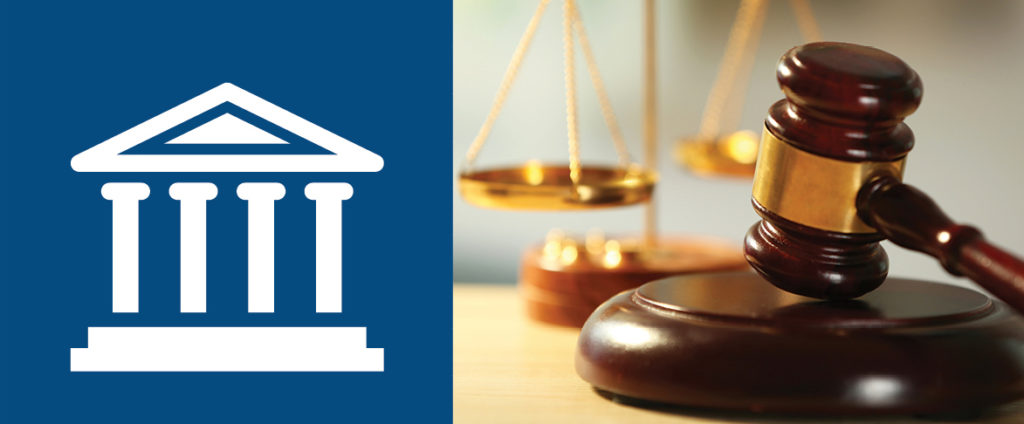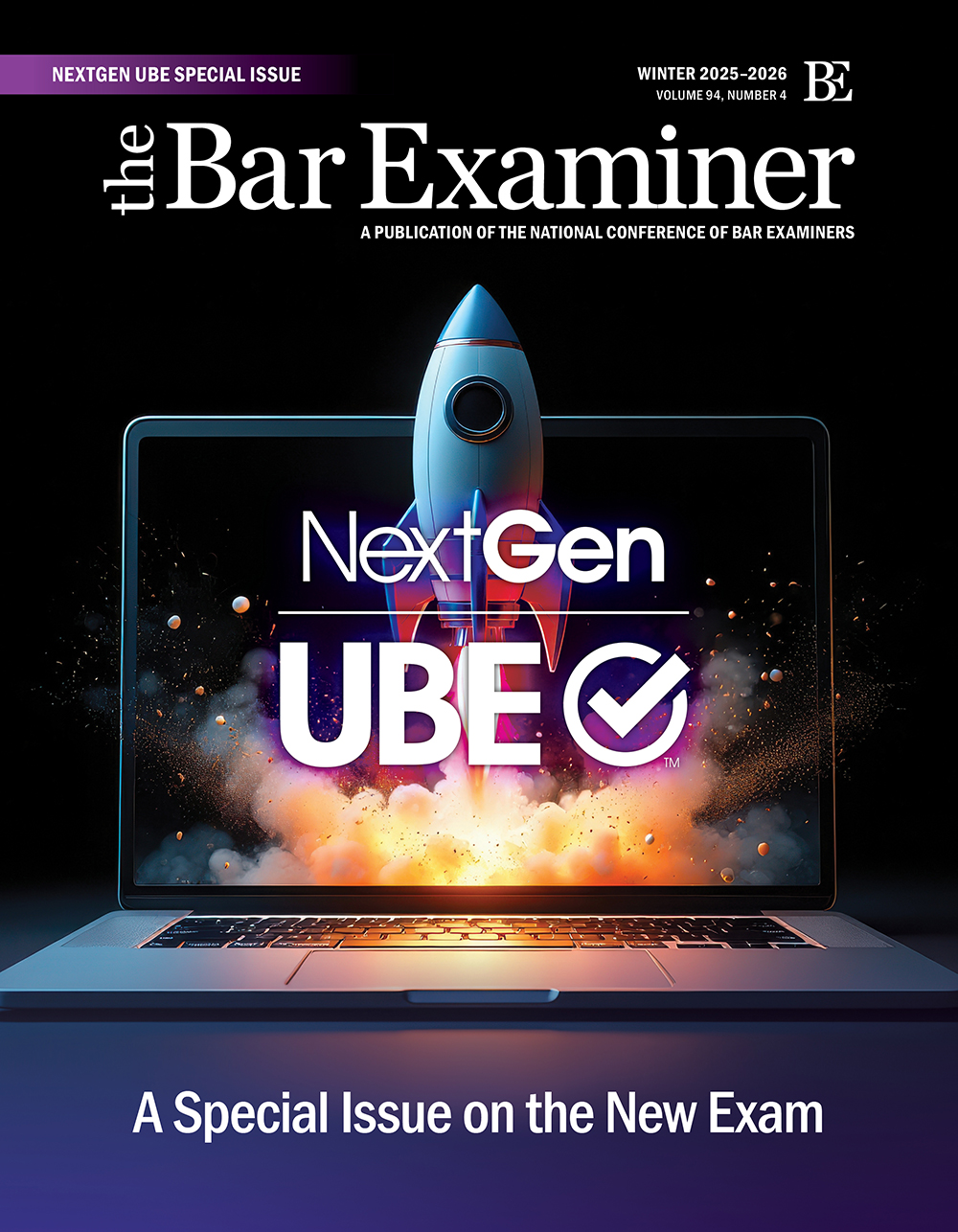This article originally appeared in The Bar Examiner print edition, Spring 2022 (Vol. 91, No. 1), pp. 64–65.
Immunity
Suspension; Constitutionality; Younger abstention
Attorney Brian Manookian filed a case against the members of the Board of Professional Responsibility (BPR) of the Supreme Court of Tennessee, arguing that the actions of the BPR in petitioning the Tennessee Supreme Court to suspend his license violated federal antitrust regulations and his constitutional rights. The Court agreed with the defendants that they were immune from suit and that the Younger abstention doctrine bars federal court involvement in ongoing attorney disciplinary proceedings.
Plaintiff Brian Manookian is an attorney whose license to practice law in Tennessee has repeatedly been temporarily suspended by the Tennessee Supreme Court, which has found that Manookian represents “a substantial threat to the public.” (The reasons for the suspensions are not germane to the District Court’s opinion in this matter.) The defendants in this case were the members of the Board of Professional Responsibility of the Supreme Court of Tennessee (BPR). Manookian filed this case against the attorney members of the BPR in their official and individual capacities, seeking damages and injunctive relief and alleging that the actions of the BPR in petitioning the Tennessee Supreme Court to suspend his license constituted violations of federal antitrust regulations and violated his rights to free speech, due process, and equal protection. He also alleged that the temporary suspension mechanism in Tennessee Supreme Court Rule 9 section 12.3 is unconstitutional on its face and as applied to him. The defendants moved to dismiss on grounds of sovereign immunity, quasi-judicial immunity, and Parker immunity, and argued that the Younger abstention doctrine bars federal court involvement in ongoing attorney disciplinary proceedings.
The court agreed with the defendants that claims for damages against them in their official capacities are barred by the 11th Amendment and the doctrine of sovereign immunity. The court also agreed that claims against the defendants in their individual capacities are barred by absolute quasi-judicial immunity: “Quasi-judicial immunity has been extended to members of professional licensing or disciplinary boards that perform investigatory, prosecutorial[,] or judicial functions.”
Manookian claimed that “the BPR, along with individual market participant defendants, entered into an agreement to exclude one of the state’s most competitively successful medical malpractice lawyers … from the market” and that this exclusion was intended to “punish” him for filing a lawsuit against a state-court judge. The defendants urged dismissal of these claims on the ground that the suspension was an act of the Tennessee Supreme Court, not of BPR, and is entitled to sovereign immunity under the 11th Amendment and state-action immunity under Parker v. Brown, which interprets the antitrust laws to confer immunity on anticompetitive action by state governments when acting in their sovereign capacity. Without Parker immunity, federal antitrust law would impermissibly burden the state’s power to subordinate market competition to other values the state may deem fundamental. Manookian argued that the suspension was not an exercise of state sovereign authority but instead the action of “a non-sovereign state agency controlled by active market participants”; under the two-part Midcal test, Parker immunity applies to such actions only if (1) the state has articulated a clear policy to allow the anticompetitive conduct and (2) the state provides active supervision of the anticompetitive conduct. Here, however, the order of suspension was issued by the Tennessee Supreme Court; BPR’s activities were limited to petitioning for the suspension and filing reports and recommendations with the Court, and ultimate action on the petition, report, or recommendation was vested solely with the Court. Therefore, the Midcal test is inapplicable and Parker immunity applies.
The Younger v. Harris abstention doctrine counsels federal courts to “abstain from enjoining certain pending state court criminal proceedings” out of a “proper respect for state functions”; the doctrine has since been extended to ongoing civil proceedings and ongoing state administrative proceedings. Manookian argued that the underlying proceedings were not “ongoing judicial proceedings” and that an exception to Younger applies because the members of BPR were biased. The Sixth Circuit in Danner specifically found that disciplinary proceedings of the Tennessee Board of Professional Responsibility are “judicial in nature.” Manookian argued that the proceedings were not “ongoing” because the order of temporary suspension had already been entered, but this argument was flatly contradicted by the long procedural history of this disciplinary proceeding, which remains “pending” to this day. The temporary suspension was clearly part of an underlying disciplinary complaint that remains unresolved. Manookian also claimed that his action falls under an exception to Younger for “bad faith, harassment, and bias.” While bias is an exception to Younger, it is “an extraordinary one” and requires the petitioner to offer actual evidence, not mere allegation. Again, as the suspension was ordered by the Tennessee Supreme Court, not BPR, any allegations of bias against the members of BPR are irrelevant or, at a minimum, would be cured when the Tennessee Supreme Court reviewed the petition for suspension. Here, the Tennessee Supreme Court specifically found on more than one occasion that Manookian posed a threat of substantial harm to the public that justified the temporary suspension of his license to practice law, and there was no allegation that the Tennessee Supreme Court reached this conclusion because of bias against Manookian.
Manookian’s antitrust claims and claims for damages were dismissed with prejudice, and his claims for injunctive and declaratory relief were stayed under Younger.
See Brian P. Manookian v. Floyd Flippin et al., Case No. 3:19-cv-00350 (M.D. Tenn. 2020)
Contact us to request a pdf file of the original article as it appeared in the print edition.








